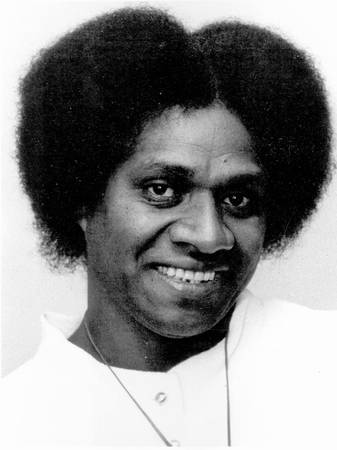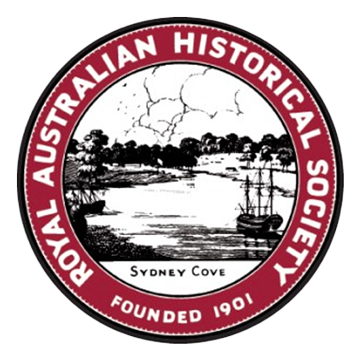Written by Elizabeth Heffernan, RAHS Volunteer
To celebrate Women’s History Month, the Royal Australian Historical Society will highlight Australian women that have contributed to our history in various and meaningful ways. You can browse the women featured on our new webpage, Women’s History Month.
Aboriginal and Torres Strait Islander people are advised that this webpage contains the images and names of people who have passed away.
Indigenous rights activist and social justice campaigner Dr Evelyn Scott lived an accomplished and determined life which left a mark upon the Australian political landscape forever. Born in Ingham, Queensland, in 1935, Evelyn first became actively involved with the Townsville Aboriginal and Torres Strait Islander Advancement League in the 1960s. She was one of the leading campaigners in the historic 1967 referendum, in which more than 90% of voters – making it the most successful referendum in Australian history – elected to remove discriminatory references to Aboriginal and Torres Strait Islander peoples from the Australian Constitution. [1]
Evelyn’s motto in life were the words of her father, himself the son of a slave labourer from Vanuatu brought to Queensland to work in the sugar fields: “If you don’t think something is right, then challenge it.” [2] There was not a moment in Evelyn’s life where she did not embrace this statement whole-heartedly.

Evelyn Scott [Image courtesy of the State Library of Victoria, MS 12913]
Also in the early 1970s, Evelyn was active in the Cairns and District Aboriginal and Torres Strait Islander Corporation for Women, and the National Aboriginal and Islander Women’s Council, which met for the first time in 1972. Her drive to empower Indigenous Australian women continued throughout her career, evident in her strident belief that women were an important “voice” in political discussion. These contributions earned her the Queen’s Silver Jubilee Medal in 1977. [4]
From 1997 to 2000 Evelyn acted as chair of the National Council for Aboriginal Reconciliation in a role which culminated with the Corroboree 2000 Bridge Walk, attended by more than a quarter of a million people marching across the Sydney Harbour Bridge in support of an official government apology. This was a remarkable achievement at a time when then-Prime Minister John Howard was cutting reconciliation funding. [5]
Throughout her incredible career, there was not much Evelyn did not achieve. She held audiences with Nelson Mandela, Queen Elizabeth II, and a number of Australian prime ministers. She was friends with fellow significant activists Eddie Mabo, Faith Bandler, and Joe McGuinness. She was the recipient of honorary doctorates from James Cook University and the Australian Catholic University, and was appointed an Officer of the Order of Australia (AO) in 2003.
Upon her death in 2017, Dr Evelyn Scott became the first Aboriginal woman to honoured by the Queensland government in a state funeral. Her words on the importance of reconciliation remain as true today as on the day she spoke them: “In true reconciliation, through the remembering, the grieving and the healing, we can come to terms with our conscience and become as one in the dreaming of this land… Will you take our hand? Will you dare to share our dream?” [6]
References:
[1] Miriam Corowa and Kirsty Nancarrow, ‘Dr Evelyn Scott, Indigenous rights activist and “trailblazer”, dies aged 81,’ ABC News, 21 September 2017, <https://www.abc.net.au/news/2017-09-21/dr-evelyn-scott-indigenous-rights-campaigner-dies-aged-81/8967192>, accessed 12 March 2019.
[2] Corowa and Nancarrow, ‘Dr Evelyn Scott’.
[3] ‘Collaborating for Indigenous Rights’, The National Museum of Australia,<https://indigenousrights.net.au/people/pagination/evelyn_scott>, accessed 12 March 2019.
[4] Alannah Croom, ‘Scott, Evelyn Ruth’, The Australian Women’s Register, last modified 12 February 2019, <http://www.womenaustralia.info/biogs/AWE6108b.htm>, accessed 12 March 2019.
[5] ‘Because of Her, We Can – Evelyn Scott’, Reconciliation Australia, 9 July 2018, <https://www.reconciliation.org.au/because-of-her-we-can-evelyn-scott>, accessed 12 March 2019.
[6] Corowa and Nancarrow, ‘Dr Evelyn Scott’.

0 Comments